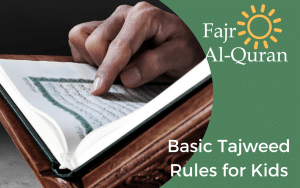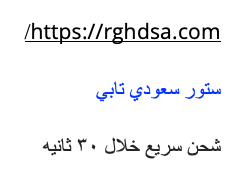
The Importance of Online Quran Classes for Kids: A Comprehensive Guide by Fajr Al-Quran Academy
In today’s digital age, education is evolving rapidly, embracing technological advancements to make learning more accessible and engaging. Fajr Al-Quran Academy stands at the forefront of this evolution, offering online Quran classes for kids that combine traditional teachings with modern convenience. This comprehensive guide delves into the myriad benefits, unique features, and the profound impact of our online Quran classes, making them an ideal choice for parents seeking quality Islamic education for their children.
Why Online Quran Classes?
Accessibility and Convenience
One of the most significant advantages of online Quran academy is accessibility. Regardless of geographical location, students can connect with qualified instructors from the comfort of their homes. This eliminates the need for commuting, making it easier for children to incorporate Quranic studies into their daily routines. For families living in areas with limited access to Islamic education, online classes provide an invaluable resource.

Personalized Learning Experience
Online Quran classes for kids at Fajr Al-Quran Academy are designed to cater to the individual needs of each student. Unlike traditional classroom settings where the pace is set for a group, online learning allows for personalized instruction. Our experienced teachers can focus on each child’s strengths and areas for improvement, ensuring a tailored learning experience that enhances their understanding and retention of Quranic teachings.
Flexibility in Scheduling
Modern families often juggle various commitments, from school and extracurricular activities to family time. Online Quran classes for kids offer the flexibility to schedule lessons at convenient times, allowing children to balance their religious education with other responsibilities. This flexibility is particularly beneficial for families with multiple children, as each child can have lessons that fit their unique schedules.

Key Features of Fajr Al-Quran Academy’s Online Quran Classes
Qualified and Experienced Instructors
At Fajr Al-Quran Academy, we take pride in our team of highly qualified and experienced instructors. Our teachers are not only proficient in Quranic recitation and Tajweed (the art of Quranic pronunciation) but also skilled in engaging young learners. They employ interactive teaching methods, ensuring that each lesson is both educational and enjoyable.
Comprehensive Curriculum
Our curriculum is meticulously crafted to cover various aspects of Quranic education. From learning the Arabic alphabet and basic pronunciation to mastering complex Tajweed rules for kids and memorizing Surahs, our classes cater to students at all levels. We also integrate lessons on Islamic morals and values, helping children develop a holistic understanding of their faith.
Interactive Learning Tools
To make learning engaging and effective, Fajr Al-Quran Academy utilizes a range of interactive tools and resources. Our online platform features multimedia content, including videos, audio recordings, and interactive exercises. These tools not only aid in better comprehension but also make the learning process enjoyable for children.
Progress Tracking and Feedback
Monitoring progress is crucial in any educational journey. Our online platform includes features that allow parents and students to track their progress through detailed reports and feedback from instructors. This transparency ensures that parents are always aware of their child’s development and can support them accordingly.
The Impact of Online Quran Classes on Children’s Lives
Building a Strong Foundation in Faith
For Muslim children, understanding the Quran is fundamental to their religious and spiritual growth. Online Quran classes for children provide a structured and consistent approach to learning, helping children build a strong foundation in their faith. Early exposure to Quranic teachings instills a sense of discipline, respect, and love for Islam that can guide them throughout their lives.
Enhancing Language Skills
Learning the Quran involves mastering classical Arabic, which significantly enhances a child’s language skills. This linguistic proficiency extends beyond religious education, as it improves cognitive abilities, enhances memory, and fosters critical thinking skills. The discipline required to learn and recite the Quran also translates into better academic performance in other subjects.
Developing a Global Perspective
Through online Quran classes, children can connect with instructors and peers from different parts of the world. This exposure to diverse cultures and perspectives fosters a sense of global community and understanding. It helps children appreciate the universality of Islam and the diversity within the Muslim Ummah (community).
Fostering Moral and Ethical Values
The Quran is not just a religious text; it is a comprehensive guide to ethical and moral conduct. Our online classes emphasize the application of Quranic teachings in daily life, encouraging children to embody the values of compassion, honesty, and integrity. This moral grounding helps them navigate life’s challenges with a strong ethical compass.
Testimonials from Satisfied Parents
At Fajr Al-Quran Academy, we are proud of the positive impact our online Quran classes for kids have had on families around the world. Here are a few testimonials from satisfied parents:
Sarah A. from London, UK: “My son has been attending online Quran classes with Fajr Al-Quran Academy for over a year now, and the progress he has made is remarkable. The instructors are patient and knowledgeable, and the flexibility of the classes fits perfectly with our busy schedule.”
Ahmed K. from Toronto, Canada: “Fajr Al-Quran Academy has been a blessing for our family. My daughter looks forward to her classes every week, and we have seen a significant improvement in her recitation and understanding of the Quran. The interactive tools and resources make learning fun and effective.”
Zainab M. from Riyadh, Saudi Arabia: “We live in an area with limited access to qualified Quran teachers, and Fajr Al-Quran Academy’s online classes have been a lifesaver. The personalized attention and comprehensive curriculum have greatly benefited my children. I highly recommend their services to any parent looking for quality Islamic education.”
How to Enroll in Fajr Al-Quran Academy’s Online Quran Classes
Enrolling your child in our online Quran classes is a simple and straightforward process. Visit our website, complete the registration form, and choose a suitable class package. Our team will guide you through the setup process and ensure that your child is ready to start their Quranic journey with us.
Conclusion
In a world where technology is transforming education, Fajr Al-Quran Academy is committed to providing high-quality online Quran classes that cater to the unique needs of each child. Our dedicated instructors, comprehensive curriculum, and interactive learning tools ensure that your child receives the best possible Quranic education from the comfort of your home. Join us at Fajr Al-Quran Academy and embark on a transformative journey of faith, knowledge, and personal growth.
For more information and to enroll your child, visit our website at [www.fajralquranacademy.com](https://www.fajralquranacademy.com).
—
Fajr Al-Quran Academy is dedicated to providing exceptional online Quran education for children around the world. Our mission is to nurture a love for the Quran and Islamic values in young hearts, empowering them to lead lives guided by faith and knowledge.
Basic Tajweed Rules for Kids
Tajweed, the art of Quranic recitation, is essential for understanding and reciting the Quran correctly. Learning Tajweed helps ensure that the words of the Quran are pronounced accurately, preserving their meanings and the beauty of the recitation. At Fajr Al-Quran Academy, we strive to make learning Tajweed accessible and enjoyable for kids. This guide introduces some basic Tajweed rules in a simple and engaging manner, making it easier for young learners to grasp and apply these principles.
- Introduction to Tajweed
Tajweed means to improve, beautify, and make better. In the context of the Quran, it refers to the set of rules governing the correct pronunciation of letters and words during recitation. Learning Tajweed helps in:
– Correct pronunciation of Arabic letters
– Proper recitation rhythm and melody
– Maintaining the original meaning of Quranic verses
- Makharij (Points of Articulation)
Understanding where each Arabic letter originates in the mouth and throat is the first step in learning Tajweed. These points of articulation are called Makharij.
Categories of Makharij:
– Throat Letters (الحروف الحلقية): Letters that are pronounced from different parts of the throat (e.g., أ, ع, ح).
– Tongue Letters (الحروف اللسانية): Letters pronounced from various parts of the tongue (e.g., د, ط, ك).
– Lips Letters (الحروف الشفوية): Letters articulated with the lips (e.g., ب, م, و).
- Characteristics of Letters (Sifaat)
Each Arabic letter has specific characteristics that define how it should be pronounced. These characteristics are known as Sifaat.
Basic Sifaat to Remember:
– Istifal (استفال): Softness of the tongue, producing light sounds (e.g., ب, ت).
– Isti’la (استعلاء): Elevation of the tongue, producing heavy sounds (e.g., ط, ظ, خ).
– Qalqalah (قلقلة): A slight echoing sound when pronouncing certain letters (e.g., ق, ط, ب).
- Noon Sakinah and Tanween Rules
The rules for Noon Sakinah (ن) and Tanween (ـً, ـٍ, ـٌ) are essential for smooth and correct recitation.
Key Rules:
– Izhar (اظهار): Clear pronunciation without merging (e.g., from letters أ, ه, ع, ح).
– Idgham (ادغام): Merging the Noon sound with the following letter (e.g., ل, ر).
– Iqlab (اقلاب): Changing the Noon sound to a Meem sound when followed by ب.
– Ikhfa (اخفاء): Pronouncing with a nasal sound when followed by certain letters (e.g., ص, ذ, ث).
- Meem Sakinah Rules
Meem Sakinah (م) rules are similar to Noon Sakinah and involve specific pronunciations.
Key Rules:
– Izhar Shafawi (اظهار شفوي): Clear pronunciation when followed by any letter except for ب and م.
– Idgham Shafawi (ادغام شفوي): Merging the Meem sound when followed by another Meem.
– Ikhfa Shafawi (اخفاء شفوي): Hiding the Meem sound with a slight nasal tone when followed by ب.
- Qalqalah (Echoing) Letters
Certain letters produce an echoing sound when they are in a state of sukoon (silence) or at the end of a word. These letters are: ق, ط, ب, ج, د.
Types of Qalqalah:
– Qalqalah Kubra (قلقلة كبرى): Strong echo at the end of an ayah or stop.
– Qalqalah Sughra (قلقلة صغرى): Light echo in the middle of a word.
- Madd (Prolongation) Rules
Madd refers to the elongation of vowel sounds. It’s an important aspect of Tajweed to maintain the rhythm and melody of the recitation.
Types of Madd:
– Madd Asli (مد أصلي): Basic prolongation of two counts (e.g., مَانَ, كَانَ).
– Madd Far’i (مد فرعي): Extended prolongation of four or more counts under specific conditions (e.g., due to Hamza or Sukoon).
- Stopping and Pausing (Waqf)
Correctly stopping and pausing during recitation is crucial for maintaining the meaning and flow of the Quranic verses.
Common Symbols:
– م: Mandatory stop
– ط: Preferred stop
– لا: Prohibited stop
- Practice and Application
Learning Tajweed requires regular practice and application. Here are some tips to help kids practice Tajweed effectively:
– Daily Practice: Dedicate a few minutes each day to practice recitation with Tajweed rules.
– Listen and Repeat: Listen to recordings of skilled reciters and try to mimic their pronunciation and rhythm.
– Use Resources: Utilize interactive tools and resources available online to reinforce learning.
– Seek Feedback: Regularly recite to a qualified teacher who can provide constructive feedback.
- Encouragement and Motivation
Learning Tajweed can be challenging, but it is also rewarding. Encourage children by:
– Celebrating their progress and milestones
– Making learning fun with games and interactive activities
– Providing positive reinforcement and support
—
By understanding and applying these basic Tajweed rules, children can enhance their Quranic recitation and develop a deeper connection with the Quran. At Fajr Al-Quran Academy, we are dedicated to providing the guidance and support necessary for young learners to master the art of Tajweed. Join us in this enriching journey and help your child excel in their Quranic studies.


